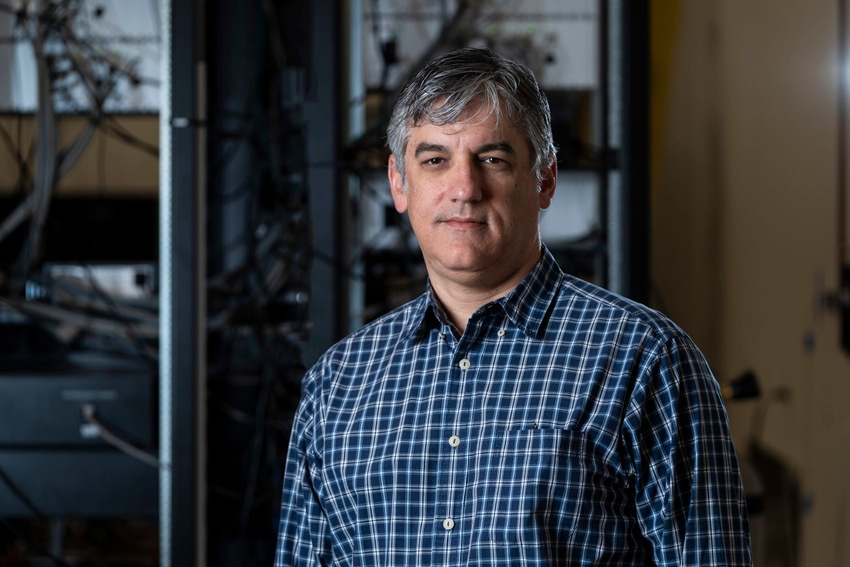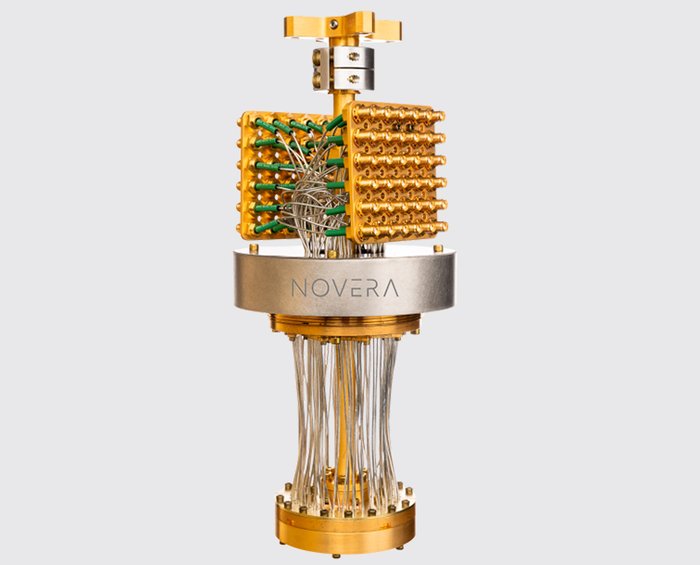
Connects decision-makers and solutions creators to what's next in quantum computing
Q&A with IonQ co-founder and chief scientist Chris Monroe

The quantum computing technological revolution crosses borders.
On one hand, international collaboration is driving important research and commercialization. On the other hand, the race to quantum supremacy between China and the U.S. is helping accelerate developments and has been described as the new space race.
However, rising U.S./China tensions also threaten the production and export capabilities of Taiwan’s globally dominant semiconductor fabrication capability. For quantum computing, the threat comes at a time when companies and nations are investing heavily to develop powerful quantum systems to tackle today’s most complex problems.
IonQ co-founder and chief scientist Chris Monroe shares his thoughts on the global drivers affecting quantum computing development.
Enter Quantum: How will the potential processor supply chain challenges affect quantum computing in general and IonQ specifically?
Chris Monroe: Our product is quite a bit different from what's out there. That said, at almost every step of the supply chain, it looks like for any kind of high-tech component, a company uses a heavy dose of classical computing chipsets.
There are a few components on the semiconductor side that are tricky. These radio frequency systems on chipsets are hard to come by and we've noticed slowdowns in the supply chain.
Taiwan Semiconductor Manufacturing Company (TMSC) is building a big plant and there's some revitalization of domestic chip production.
There's an indirect effect on our business. We’re setting up a Seattle office to manufacture our computer systems, but that’s going to be more of an integration office where, instead of building prototype quantum computers, we’ll iron out a design and build many of one design if there is demand for these systems.
How will the Chips Act affect the U.S. quantum computing industry?
One component of the Chips Act is to stimulate the U.S. agencies that fund scientific research in quantum, in particular the National Science Foundation (NSF), which formerly has been blue skies science.
They have a new directorate called Technology, Innovation and Partnerships (TIP) and it's a little more tech than all the other parts of NSF and some of this Chips Act money will flow into TIP to bankroll some of the research in quantum computing.
It's going to be good for the field to get more physicists and chemists and university government laboratory groups starting to look at different alternative quantum hardware to build systems. I'm sure IonQ will get involved with some of these research efforts.
As well as manufacturing, another main driver toward commercialization of quantum is the so-called quantum ��“space race” with China. How are supply chain issues affecting that?
Since the pandemic hit a few years ago, supply chain issues got tight, and all kinds of other regulatory things including the inability to travel made it hard to lubricate all the relationships we have, especially with other countries. We're forming very close collaborations with some of our suppliers to make sure we can guarantee things keep going.
But they're bothered by supply chain issues themselves. It's going to hit all of tech. The good news for us is that we don't have a single choke point, where, for instance, we must have TSMC build this particular chipset. Almost everything we integrate into our quantum computing systems has multiple vendors, so that's good. But if all the vendors have supply chain issues, that's a problem. It's not a single, glaring issue that's killing us.
The EU and China are very well organized, whereas in the U.S. it's just not in our culture, to have industry, academics and government working together. In China, they are the same thing, and that gives them a certain advantage in unifying things. The EU less so but it’s more unified in pushing this forward.
We have close ties with the EU and other countries, and a close relationship with groups in Korea. We have a partnership with Hyundai working on some of their research problems and it’s budding in Japan, Singapore and Australia, so we’re becoming international.
The U.S. government is encouraging international collaborations, certainly with Australia, the Five Eyes [the intelligence alliance of the U.K., the United States, Canada, Australia and New Zealand, Europe and Canada.
One aspect we didn't talk about is export control and issuing visas. A healthy fraction of our graduate students in tech are from China and there is a lot of pressure to close the door on that. While it’ll probably hurt Chinese efforts at stealing technology, they’ll still get it in other ways.
On the other hand, it'll kill U.S. technology, because even if a small fraction of the Chinese students go back to China and do bad things, we get the lion's share of them stay here to work. Adversaries are going to get stuff; they will no matter what you do, you just have to stay ahead of it. If they get stuff, just do the next generation sooner.
In terms of technology, we’re worried about U.S. export control. If you don't allow some of these things to be deployed in the U.K. or Europe, for example, it's going to be putting walls around our borders and then Europe is just going to go ahead and be able to steamroll in quantum.
About the Author(s)
You May Also Like
.png?width=100&auto=webp&quality=80&disable=upscale)
.png?width=400&auto=webp&quality=80&disable=upscale)




